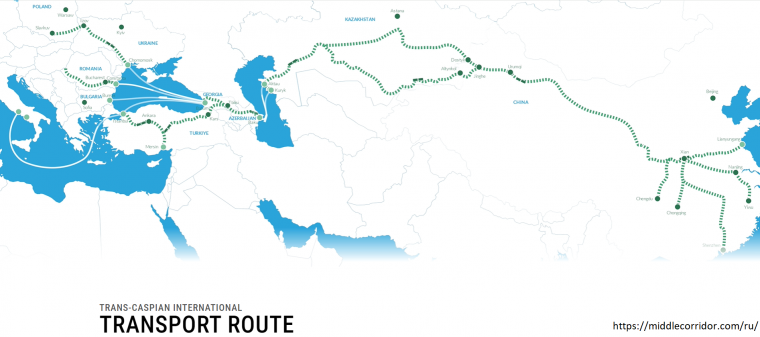Sergey Zharkov: The Middle Corridor (TITR) – high expectations and harsh realities

The modern system of international logistics has been undergoing a major transformation in recent years. In 2020-2021, the coronavirus epidemic disrupted the supply chains of raw materials and finished products between Europe and Asia. In 2022, the Special military operation (SVO) in Ukraine, in 2023, the renewed Palestinian conflict became the most noticeable factors in the transformation that took place, their influence included infrastructure transit projects that are directly related to the countries of Central Asia and the South Caucasus. The unhurried technological modernization, the progressive development of investment budgets against the backdrop of the widespread sanctions fight against Russia received an unexpected and comprehensive acceleration: the hope for the EU countries, which felt transport insecurity, has become the Trans-Caspian International Transport Route (TITR). Or, more briefly, the Middle Corridor.
Organizational and legal dimension. In November 2013, within the framework of the International Transport and Logistics Business Forum "New Silk Road", which was held in Astana, the authorities of the Azerbaijani, Georgian and Kazakh railways signed an Agreement on the establishment of a Coordination Committee for the development of the Trans-Caspian International Transport Route. The representatives of the seaports of Aktau (Kazakhstan), Baku (Azerbaijan) and Batumi (Georgia), as well as the national railway operator of Turkey joined the authorities of the railways of the three countries. In December 2016, the participants of the organizing committee decided to create the Trans-Caspian International Transport Route Association, which began full-fledged work in February 2017. It is 2017 that is considered the year of birth of the Middle Corridor...
Read the paper




